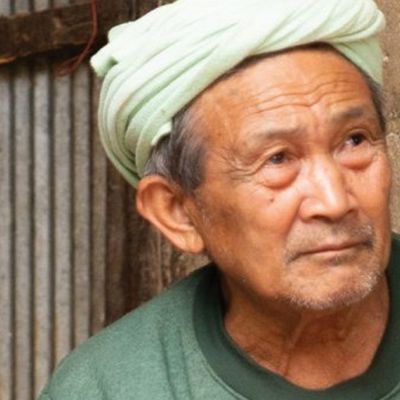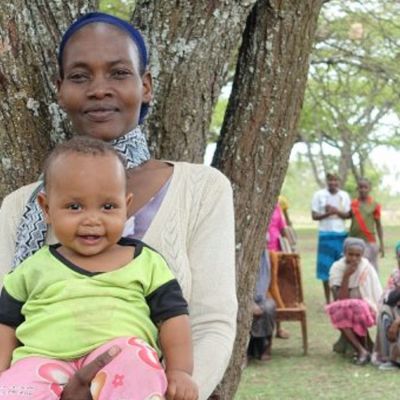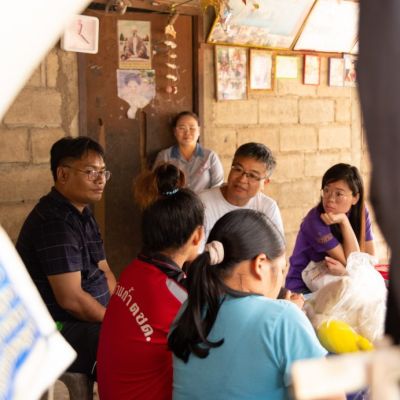Banner image: The author (far right) and other trippers visited ethnic minorities in northern Thailand
Written by: Janice Cheng (participant of CEDAR’s exposure trip in 2018; church pastor)
In December last year, I went to the Thai-Myanmar border with CEDAR to learn about their poverty alleviation projects in the area. The 8-day trip enabled me to understand more about the region. We visited some villages with CEDAR’s local partners and spoke to various individuals during our time there.
The residents are mostly ethnic minority groups from the mountainous areas, and they all have their own predicaments to overcome. There are abandoned single mothers and minority groups who have been relocated to the border area in northern Thailand due to warfare and other problems. Since they have not been granted Thai citizenship, they do not enjoy any social welfare, employment or education benefits or support.
The Thai-Lahu Foundation (TLF) is a Christian organisation that mainly serves the Lahu ethnic group. They help the minority groups improve their living standards by providing them with knowledge of agricultural techniques, health and sanitation training, and education support. TLF was the first organisation we visited on this trip. On the second day, led by the organisation’s staff, we went to villages and visited two churches that TLF has a connection with. If a Christian organisation helps to fulfill people’s material needs, then a church helps to fulfill their spiritual needs. These two ministry approach complement each other.
In the first church that we visited, the pastor and his wife came from a church in a big city. Their original plan was to establish a church at the Mae Sai border area in northern Thailand and carry on with their “evangelical mission”. However, the issues arising from poverty and injustice in the region confronted them to reconsider the role of the church in the community.
In the border area of northern Thailand, owing to their circumstances and personal limitations, many ethnic minorities have often become victims to exploitation and oppression in the hands of criminals. Their wages are suppressed and their women are easy targets for human traffickers. Having children is perhaps a curse to them because they do not have the necessary means to provide for their children. There are also many women who have been sexually-assaulted that need protection and company to overcome the dark experience.
These situations persuaded the pastor and his wife to make their church as a base to connect with the local community and to provide necessary services to the residents. The couple also gave all they have to provide foster care for a group of children. Their son, whom himself is a preacher, works with his parents and helps to look after the children.
Thai Mother Teresa
The second church we visited was also ran by a pastor with a loving heart. She received a spiritual vision from God about caring for the sick. For many years, she has opened her own home to accommodate patients from Laos and Myanmar’s border areas who came to Thailand to seek medical treatment. The lack of advanced medical resources in their countries of origin forced these ethnic minorities to come to Thailand to seek better medical care. However, language barriers often created obstacles and the pastor volunteered to be the interpreter and acted as a bridge between the patients and the medical service providers.
To provide food for her family and the patients, the pastor had a small garden and a fish pond to grow vegetables and raise catfish. One of us asked how many people her garden and pond can feed. She said she did not know for certain: “It’ll feed as many as it can. If it’s not enough, we’ll just buy more food.”
When we carry out ministries, we more or less try to “work within our limits”. We decide what to do based on how much resources we have. The pastor’s reply brought us shame because she never works according to what she “has”, but as much as she “can”. She gave all her possesses without reserve in reply to the love she received from God. She has never taken a moment of rest in all these years, but has continuously burned the candle at both ends. In our eyes, she is the Thai Mother Teresa.
It has been nearly 30 years since TLF began their development ministry in northern Thailand. In recent years, the organisation has focused on providing support to the minority groups living in the villages in Myanmar. While helping the villagers, the organisation noticed many problems. For instance, the government sold land to big corporations who use chemical fertilisers to grow mandarin oranges, resulting in water pollution. In addition, the residents reused discarded chemical fertiliser containers to carry water out of ignorance; they felt ill and some had even died after consuming the contaminated water.
Hoping to improve their living standards, many smuggled themselves into Thailand to become illegal workers. Among them, some women find work in prostitution or choose to become “kept women”. Owing to gender imbalance in China, “bride-buying” has become a growing business. This is one of the reasons why human trafficking is so rampant in the Thai-Myanmar border areas.
Poverty: Sin Passively Borne by Sufferers
If we have to classify “poverty”, it is not difficult to understand why some may ignorantly put it under “sin”. In Jesus’ time, many perceived the grassroots, the sick, and the poor as sinners. Even though these marginalised groups had never committed a moral sin, the privileged looked at them as having been cursed by God. On them, “poverty” equalled to “sin”, and their “sin” was innate. As a Chinese saying goes, they “made a mistake in the process of reincarnation” and were born into poverty-stricken countries.
As Christians, we naturally find these heartless viewpoints despicable. But how should we interpret poverty? If poverty is indeed a sin, it is a “sin passively borne by the sufferers”. The poor do not have the autonomy to choose their living environment and are powerless to overcome the predicaments caused by their surroundings and social structure. Very often, it is the wealthier and powerful people who cause the oppression and suffering of the poor. The rich and influential plunder environmental and natural resources, and it is not unfair to say that they have been exploiting the poor indirectly. Their oppression of the working class is indubitably an obstacle for them to escape from poverty. And yet, in a capitalist economy, consumers including ourselves demand cost-effectiveness and products that are cheap and of good quality. We are in fact unknowingly taking part in imposing the “sin of poverty” on these people.
The poor passively bear the sins brought by poverty, and at some point, they would inevitably have to commit the “sins” which we regard as immoral, such as prostitution, surrogacy, drug cultivation, and other participation in criminal acts.
In this way, poverty is indeed an extremely destructive “sin”. One of its significant consequences is that it obstructs normal interaction between the poor and the privileged. In the old days, Jesus Christ deliberately walked among the marginalised groups. He wanted to repair the relationship between the poor and the rest of the world and to re-establish the lives of these “sinners”. Since Jesus has already demonstrated how it is done, the church as the bride of Christ should eagerly follow in His footsteps. The preachers in the local churches and the staff of CEDAR’s partners we visited are doing their best in their roles to help resolve the problems brought on by poverty.
Some forms of poverty exist in everywhere. Are the churches in Hong Kong fulfilling the role of the bride of Christ? Have Christians in Hong Kong been lacking the courage to face and respond to the problems induced by poverty?
(Subheadings are added by CEDAR Fund)
Content of this issue
Written by: Lai Ka Chun In mid-2018, a junior football team and their assistant coach were rescued after 18 days in Tham Luang Nang Non cave in Chiang Rai Province, Thailand. Their 25-year-old coach’s care in the cave was indispensable. This incident made the coach a hero in Thais’ hearts. However, this coach was originally stateless, as well as the other 3 boys, who had no Thai citizenships. According to UNHCR, there are about 480,000 stateless people in Thailand, and most of them were living in remote mountainous area near the border. As they belonged to no country, they could not enjoy the rights of education, healthcare, employment, and social security as other citizens. Even though they lived…
Written by: Au Bing Chung (Lecturer at the Christian Ministry Institute) Resurrection is an eschatological idea, and Integral Mission addresses the responsibility and stewardship of Christians living on earth. Although there seems to be no apparent connection between the two, the eschatological view of Christians will affect how they interpret their missions. For instance, if a person believes that the world will be in ultimate destruction at the end days, he will put less effort in constructing a world that will be wiped out eventually. On the other hand, if the believers anticipate a forthcoming new world that is connected to and evolved from the present world, they will somehow attend to the world’s development and conservation. Paul…
We put on armors to fight to eliminate harmful traditional practicesSubvert the harmful influences and effectsWe are united and determined to take actionsBecause we are now well awaken to the scourge. Ignorant people in the pastHave been badly harmed by themBecause they did not know any better.Ignorant people in the past believedHarmful traditional practices were good for themWhen indeed their lives were at stake. Female Genital Mutilation is a major harmful practice.Sugar-coated as prestigious and noble,FGM suffocated our mothersWe regret and repent for the harm incurred.FGM steals away sexual pleasures, corrupts marriagesAnd adds complications to child birth. (Lyrics edited by CEDAR Fund, originally written by a memberfrom the ant-FGM group in Ethiopia.) Under the warmth of the bright…
Banner image: The author (far right) and other trippers visited ethnic minorities in northern Thailand Written by: Janice Cheng (participant of CEDAR’s exposure trip in 2018; church pastor) In December last year, I went to the Thai-Myanmar border with CEDAR to learn about their poverty alleviation projects in the area. The 8-day trip enabled me to understand more about the region. We visited some villages with CEDAR’s local partners and spoke to various individuals during our time there. The residents are mostly ethnic minority groups from the mountainous areas, and they all have their own predicaments to overcome. There are abandoned single mothers and minority groups who have been relocated to the border area in northern Thailand due…






